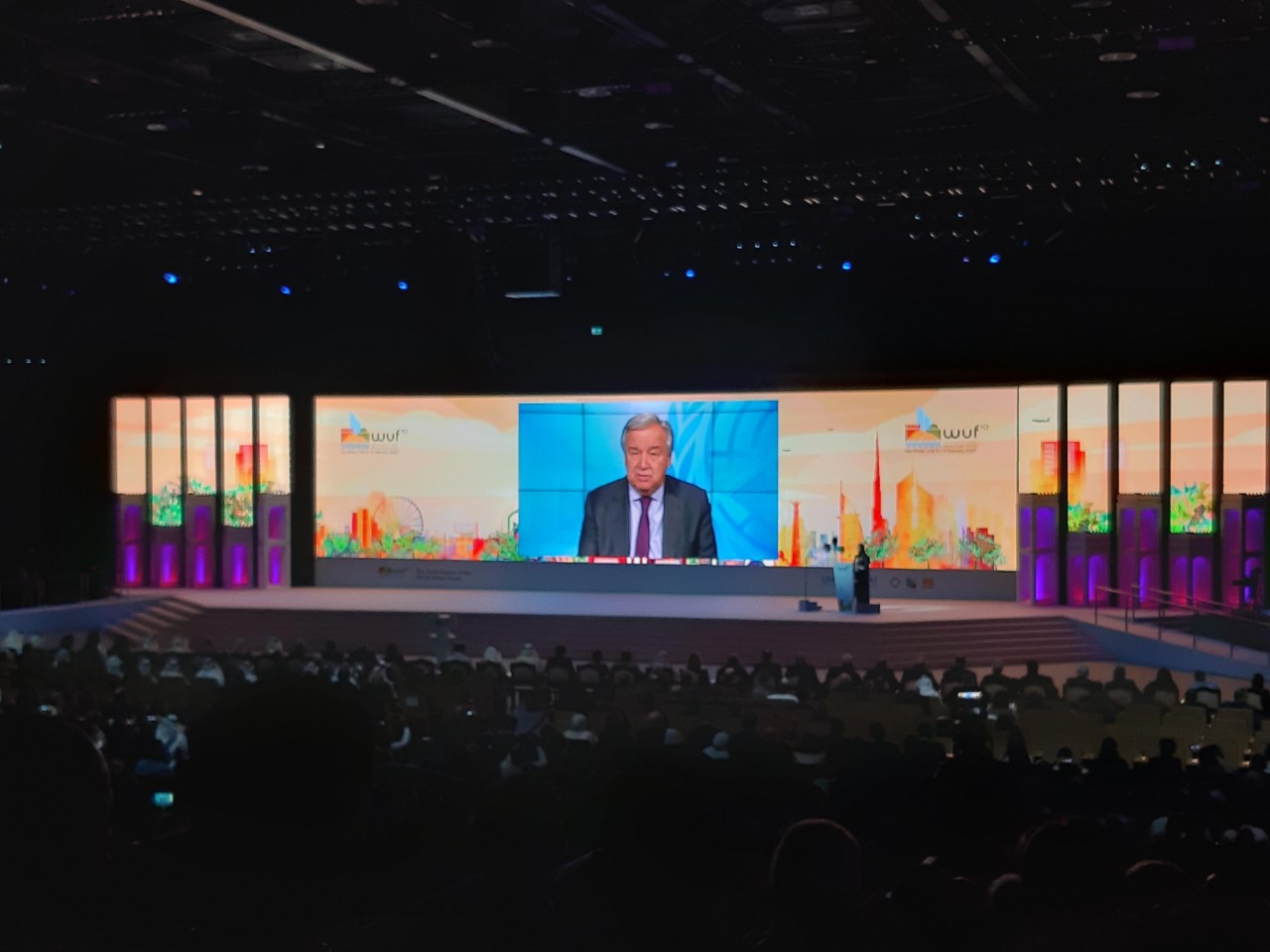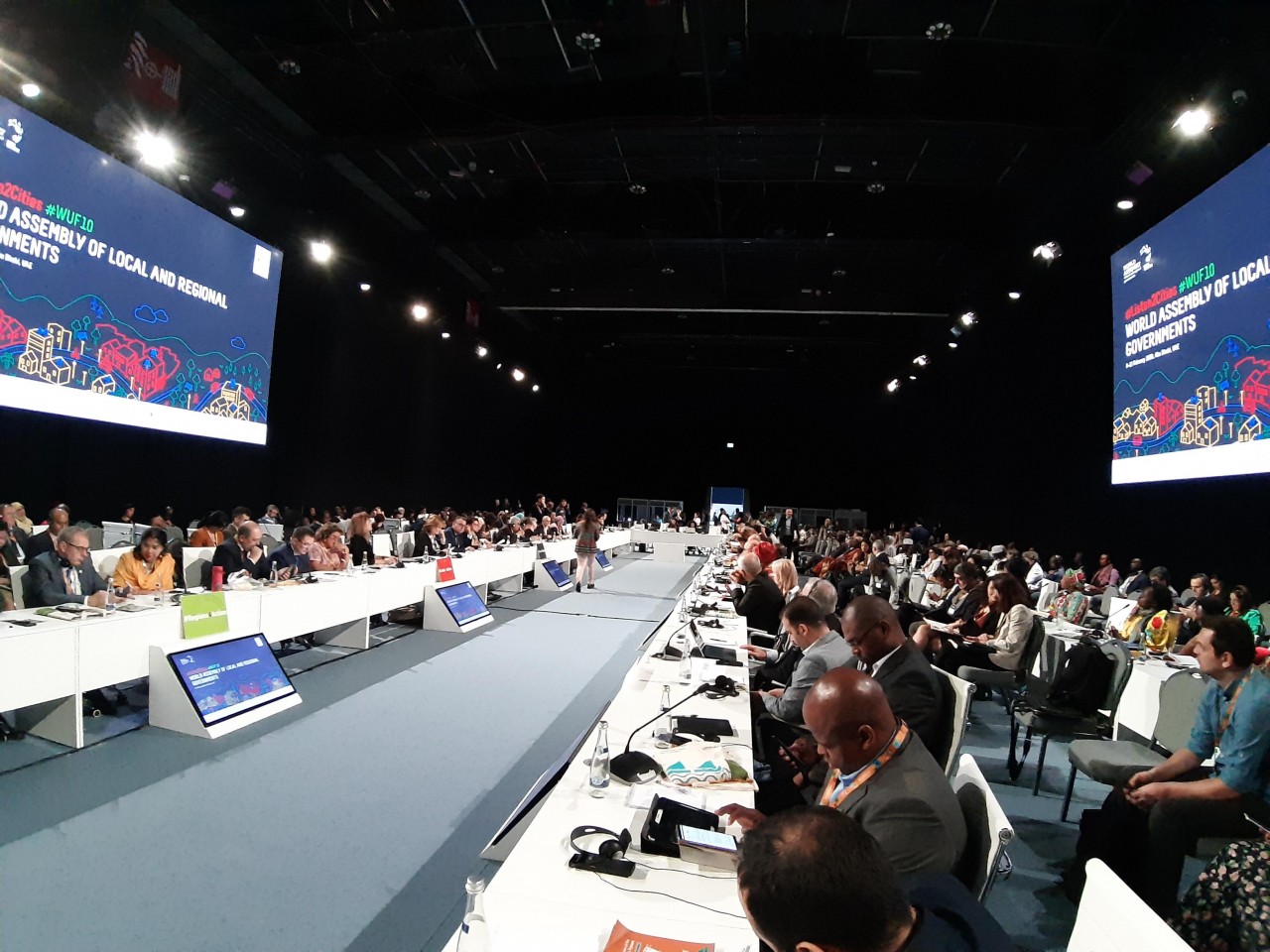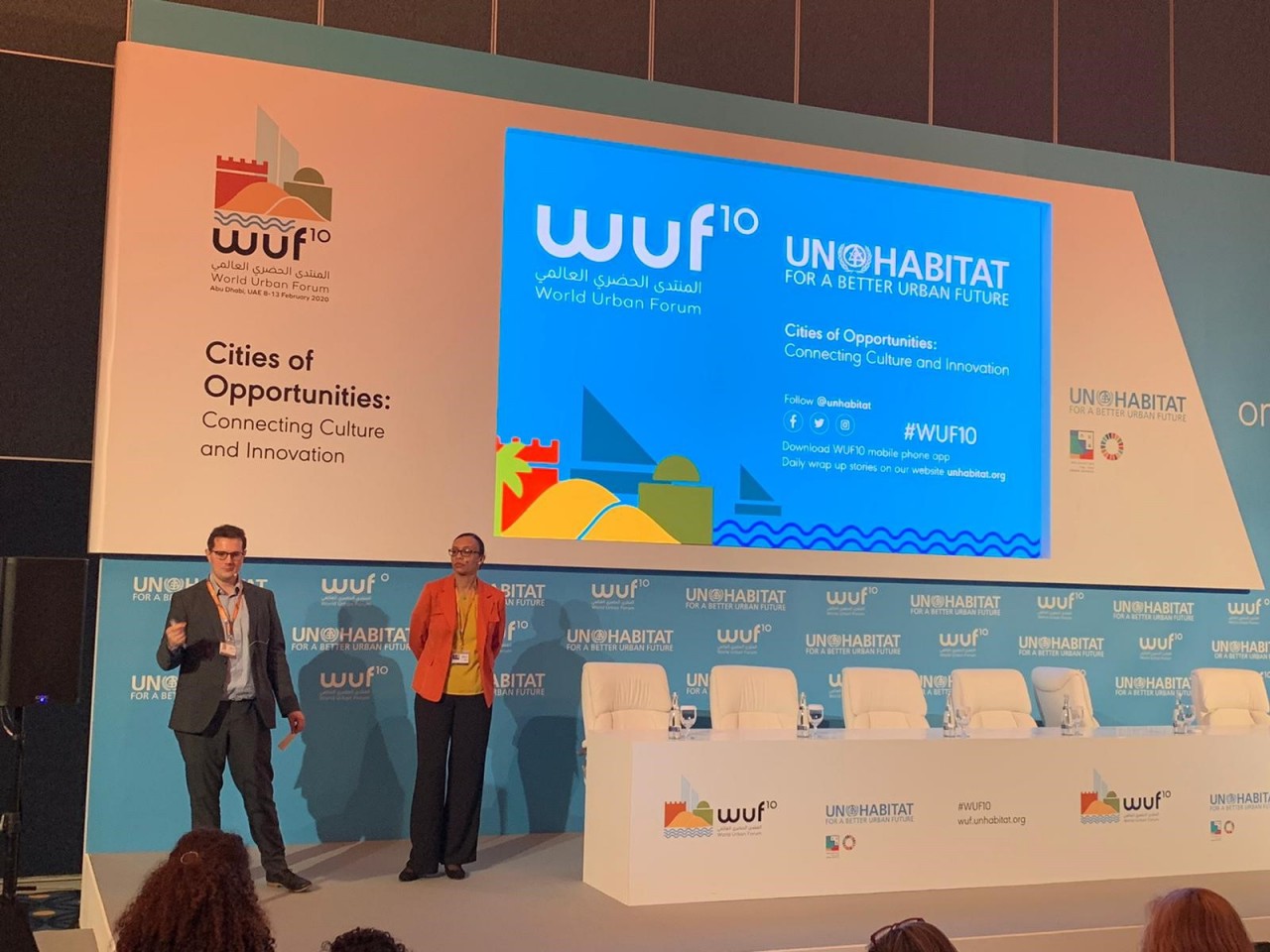Local Action, Global Impact: Lessons from the 10th World Urban Forum
13 February 2020

From 8-13 Feburary, IFLA participated in the 10th World Urban Forum, a UN-led conference bringing together mayors, professionals, civil society and international agencies in order to explore how to build stronger, fairer and more sustainable communities. Libraries are a key part of the picture.
Many of the things that have a decisive influence on our lives are decided not at the global, but at the local level.
From economic opportunities to the social connections between people, and from the preservation and promotion of heritage to action to reduce emissions and adapt to climate change, town halls often have more of a role than national governments.
The World Urban Forum – a biennial meeting of mayors, governments, planners and architects and civil society stakeholder – provides an opportunity to share thinking on how to do this.
This year’s edition – the 10th – was held in Abu Dhabi, United Arab Emirates, has 18 000 registered delegates, and focused on the role of culture and innovation in creating cities of opportunity.

Libraries as Accelerators of Successful Local Development
Participating for the first time, IFLA played an active role, speaking at four separate sessions.
At the World Assembly of Local and Regional Governments, IFLA underlined the unique contribution libraries can make to ensuring that culture and development reinforce each other.
At the Networking event organised by the Climate Heritage Network, IFLA discussed how both library spaces and library collections could serve to support education and innovation for climate action.
In a session focused on the different UNESCO Cities programmes, IFLA presented the Media and Information Literate Cities programme, underlining in particular how information skills could bring economic, social, cultural and civic benefits.
Finally, at an event promoting the report on culture in the implementation of the SDGs to which IFLA contributed, we explained both the broader library contribution to development, and the need to build momentum to ensure culture and heritage realise their potential.

A Receptive Audience
Given how many participants came from the local level, and so had seen libraries at work in their communities, it was perhaps not surprising that there was general appreciation of the work of our institutions.
Nonetheless, there were a number of high points, in particular the reference to libraries as one of the factors that make local governments so crucial for successful development.
Elsewhere, presenters underlined how important libraries as guardians of heritage and cultural venues, with the potential to contribute to sustainable urbanisation.
Others noted the need to ensure that smart cities do not neglect the human dimension, and the power of libraries both to extend connectivity, and to help people develop the skills they need to make the most of the internet.
Finally, a new World Bank report highlighted how libraries can represent part of the hidden wealth of cities as public spaces for building connections and social capital.
Next Steps
The different contributions that public and other libraries can make to development at the local level is of course not news for public librarians.
However, it is certainly good news for libraries that at meetings such as the World Urban Forum, and in major organisations such as United Cities and Local Government – the organiser of the World Assembly of Local and Regional Governments – there is such recognition of the work of our institutions.
IFLA will continue to use opportunities such as this to encourage local governments everywhere to value and support their libraries as factors of success in their work.
Read IFLA’s flyer for the World Urban Forum, and our analysis of what the New Urban Agenda means for libraries.